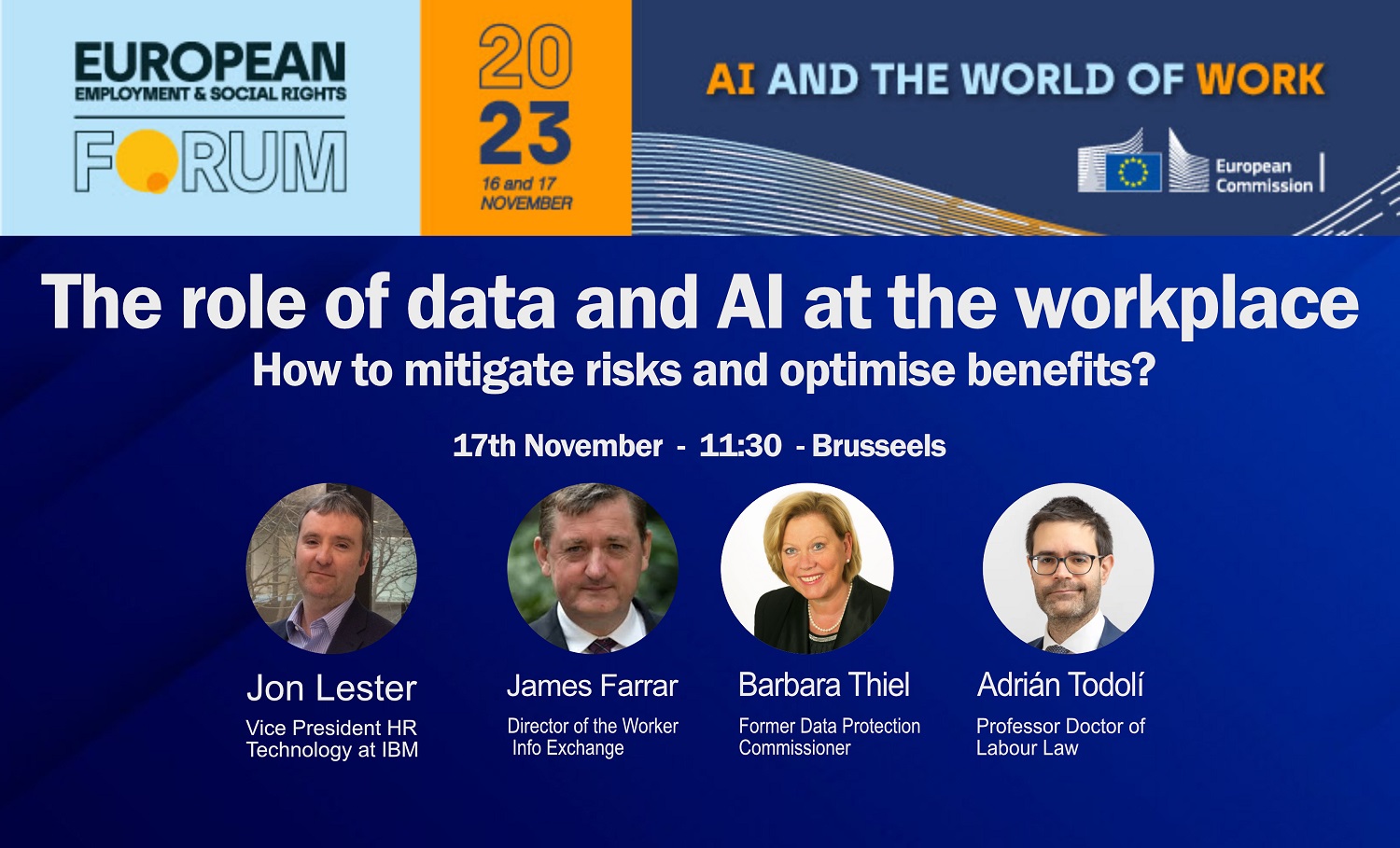The European Employment & Social Rights Forum was celebrated in Brussels on 16 and 17 November. On this occasion, European Union institution representatives, national policymakers, Ministers, business leaders, civil society and academia have met in order to deepen into the different relationships between the Artificial Intelligence and the world of work that are currently developed.

The fast technological transformation and the new digital technologies generate a huge amount of opportunities. They create new jobs for people, broaden the access to education, promote the productivity and improve our efficiency.
However, these advancements also highlight the growing inequality and lack of transparency in the world. How can we assure the equity, the inclusivity and the transparency while navigating the new world of work?

Adrián Todolí Signes - Co-director of the Chair for Collaborative Economy and Digital Transformation
In this regard, the co-director of the Chair for Collaborative Economy and Digital Transformation, Adrián Todolí Signes, has participated in a discussion panel focused on the mitigation of risks and the optimisation of profits from the implementation of Artificial Intelligence in the workplace.
New technologies and data throughput were discussed as main topics, as they provide, at the same time, both risk and opportunity. On the one hand, they give the employers the possibility of improving efficiency and productivity. They also allow the workers to shorten or supress tedious tasks, exchanging them for others that are more rewarding. On the other hand, the ability to collect data and monitor work processes on a large scale can lead to an excessive surveillance if proper protection measures are not taken. This would put at risk workers’ fundamental, data protection and privacy rights. Designing and launching technologies with ethical and transparency basis can help reducing the information asymmetry between the employers and the employees.
To this effect, different initiatives have been fostered in the European Union. The General Data Protection Regulation (GDPR) contains important worker data rights, while the current proposal of Directive on Artificial Intelligence includes safeguards to high-risk artificial intelligence used in working environments. The Directive on Platform Work also intends to establish rules for algorithmic management, which were designed by taking into account the specific commercial model of the labour platforms. Nevertheless, a variety of approaches, including the enterprise point of view, will be needed to use the potential of the data in benefit of the employers and the workers.
Throughout the session, the following questions were discussed:
- What are the specific risks and benefits of the implementation of Artificial Intelligence and algorithms in workplace and what role play the data?
- Which level of employer monitoring of the employees is acceptable and how could we define the limits to prevent harm?
- What measures should the companies take in order to reduce the risks of Artificial Intelligence and employees’ data usage in workplace (for example, excessive surveillance or asymmetry of information) and to also guarantee the benefits for the workers?
- Are there enough existing rules in the labour context or do we need new rights and approaches? Can the collective negotiation have a role in this?
- What is the potential for trusted employee data to assert workers’ rights and harbour collective negotiation?


